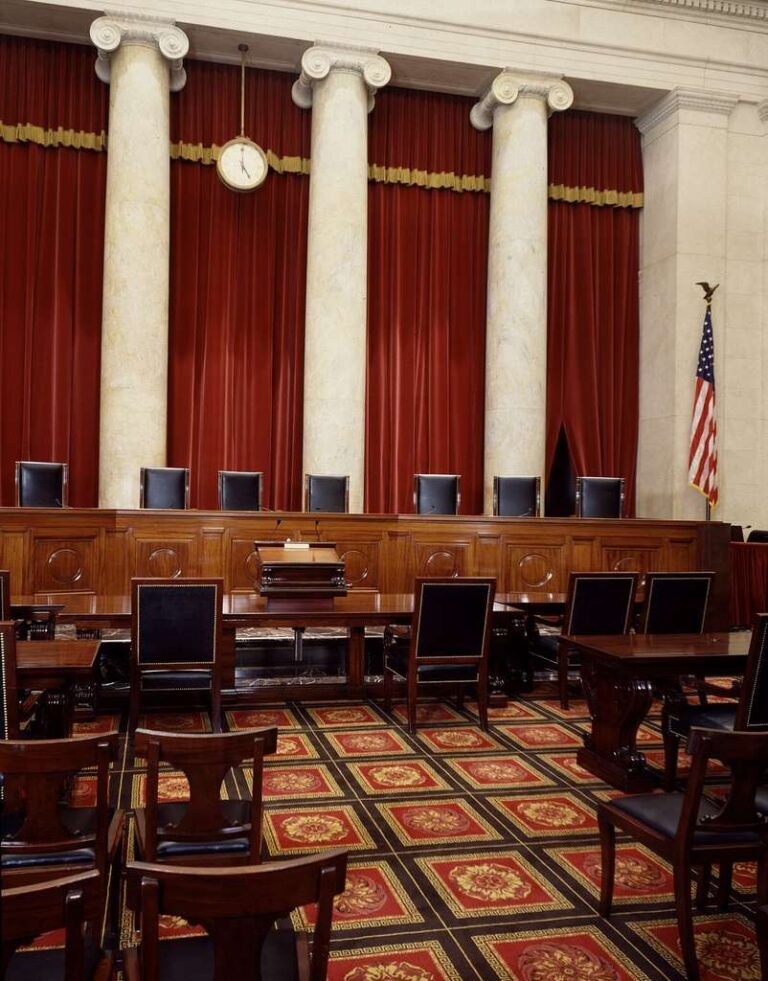
John Fry is a student at Harvard Law School.
SpaceX and Trader Joe’s are attacking the constitutionality of the NLRB. While their arguments may be novel, their strategy is not. After the Wagner Act’s passage in 1935, employers across the country openly flouted the law, arguing that it was unconstitutional. They had reason to think the Supreme Court might agree: it had previously struck down wage and hour laws and defended yellow-dog contracts in the name of the Constitution. More recently, the Court had stymied President Roosevelt’s early attempts to regulate labor relations by voiding the National Industrial Recovery Act. But the Lochner era drew to a close after Roosevelt’s threats to pack the Court, and the justices finally upheld the NLRB’s constitutionality in 1937.
Undaunted by the many decades of intervening precedent, today’s employers are once again ignoring labor law in hopes of capitalizing on a sympathetic judiciary. It’s no secret that today’s Court is skeptical of the administrative state: it has sharply curtailed how Congress may delegate power to agencies in cases like West Virginia v. EPA, and as Jason and Darin have recently discussed, the Court may overrule Chevron this term, reducing the deference courts must afford agency decisions. Amid this anti-agency climate, employers accused of unfair labor practices such as illegally firing workers and refusing to collectively bargain are asserting the defense that the very structure of the NLRB is unconstitutional.
In 2022, a group of SpaceX employees published an open letter criticizing the erratic and offensive behavior of CEO Elon Musk. SpaceX promptly fired eight workers linked to the letter, and the NLRB subsequently issued a complaint alleging unlawful retaliation against the workers. The next day, SpaceX filed suit in the Southern District of Texas, alleging three constitutional problems with the NLRB.
First, SpaceX argues that the NLRB’s members and administrative law judges are impermissibly shielded from removal by the president. The NLRA states that the president can only fire an NLRB member for “neglect of duty or malfeasance in office.” The Supreme Court held in 1935 that Congress could create “independent” agencies led by multiple expert members who can only be removed from their positions for good cause. Even when the Roberts Court limited how agencies could be structured in Seila Law, it acknowledged the constitutionality of “expert agencies led by a group of principal officers removable by the President only for good cause.” SpaceX contends that NLRB members do not fit this description because they “exercise substantial executive power.” But according to Seila Law, examples of executive power include the imposition of punitive fines (the NLRB can only order restorative remedies, such as backpay) and the prosecution of crimes, not the judgments of bipartisan bodies of experts.
SpaceX’s challenge to the protections enjoyed by ALJs mirrors an argument made in Jarkesy, an ongoing case about the Securities and Exchange Commission. The Fifth Circuit ruled in Jarkesy that the SEC’s ALJs unconstitutionally benefit from “two layers” of protection, because they can only be removed for cause by SEC commissioners, who themselves can only be removed for cause by the president. However, the Supreme Court showed little interest in this point during oral arguments for Jarkesy, suggesting that the argument is unlikely to prevail. While the Court did articulate a “two layers” doctrine in Free Enterprise, this applies only to officers who exercise executive power. As the Jarkesy dissent observes, “ALJs perform an adjudicative function”—the “J” stands for “judge,” after all.
SpaceX’s second claim is that NLRB proceedings violate the Seventh Amendment right to trial by jury. At first blush, this is surprising: agencies may use administrative proceedings to adjudicate “public rights,” including rights stemming from a federal regulatory scheme. This would appear to include labor rights, which are conferred by the NLRA. However, SpaceX takes issue with Thryv, in which the NLRB expanded its remedial arsenal from traditional backpay to include other “make-whole remedies.” For example, an employer who illegally fires a union supporter could be made to reimburse out-of-pocket medical expenses caused by the loss of health insurance. SpaceX suggests, without much elaboration, that these new remedies transform labor proceedings into “traditional legal claims” which warrant trial by jury. Many commentators do expect the Supreme Court to decide Jarkesy on Seventh Amendment grounds. But the securities fraud at issue in that case bears an arguable resemblance to traditional common-law fraud; such a historical parallel does not exist in NLRB proceedings.
Third, SpaceX argues that the NLRB violates the separation of powers by mixing executive, judicial, and legislative functions. In particular, the company objects to the use of 10(j) injunctions, in which the NLRB petitions a federal district court for temporary relief, typically to ensure that future remedies are effective. SpaceX claims that NLRB members wield executive power in the “quintessentially prosecutorial act” of seeking injunctions, which may bias the members when they later hear cases in their “quasi-legislative, quasi-judicial capacity.” However, the NLRB is designed to avoid this sort of conflict of interest: it is the general counsel, the agency’s independent chief prosecutor, who initiates 10(j) proceedings. The members’ role is to approve or deny the general counsel’s request to proceed to court. This preview of the case’s merits could be characterized as judicial, not executive, in nature.
These ambitious constitutional arguments are likely to become a trend. In an NLRB hearing two weeks ago, Trader Joe’s announced its intent to argue that “the structure and organization of the National Labor Relations Board and the Agency’s administrative law judges is unconstitutional.” Like SpaceX, the grocer is represented by Morgan, Lewis & Bockius. The ALJ in the Trader Joe’s hearing, unwilling to declare his own role unconstitutional, urged the company to “take that up with the Board and with the federal courts.” While aggrieved parties have long been able to petition circuit courts for review of final orders from the NLRB, the Supreme Court’s recent Axon decision means that Trader Joe’s could also make its constitutional case immediately in federal district court (as SpaceX did). Even if these suits face long odds, they could prove to be a valuable delay tactic. It already takes unions over 500 days on average to bargain a first contract after winning recognition, and a flood of structural challenges to the NLRB is only likely to increase that number.










Daily News & Commentary
Start your day with our roundup of the latest labor developments. See all
February 8
The Second Circuit rejects a constitutional challenge to the NLRB, pharmacy and lab technicians join a California healthcare strike, and the EEOC defends a single better-paid worker standard in Equal Pay Act suits.
February 6
The California Supreme Court rules on an arbitration agreement, Trump administration announces new rule on civil service protections, and states modify affirmative action requirements
February 5
Minnesota schools and teachers sue to limit ICE presence near schools; labor leaders call on Newsom to protect workers from AI; UAW and Volkswagen reach a tentative agreement.
February 4
Lawsuit challenges Trump Gold Card; insurance coverage of fertility services; moratorium on layoffs for federal workers extended
February 3
In today’s news and commentary, Bloomberg reports on a drop in unionization, Starbucks challenges an NLRB ruling, and a federal judge blocks DHS termination of protections for Haitian migrants. Volatile economic conditions and a shifting political climate drove new union membership sharply lower in 2025, according to a Bloomberg Law report analyzing trends in labor […]
February 2
Amazon announces layoffs; Trump picks BLS commissioner; DOL authorizes supplemental H-2B visas.